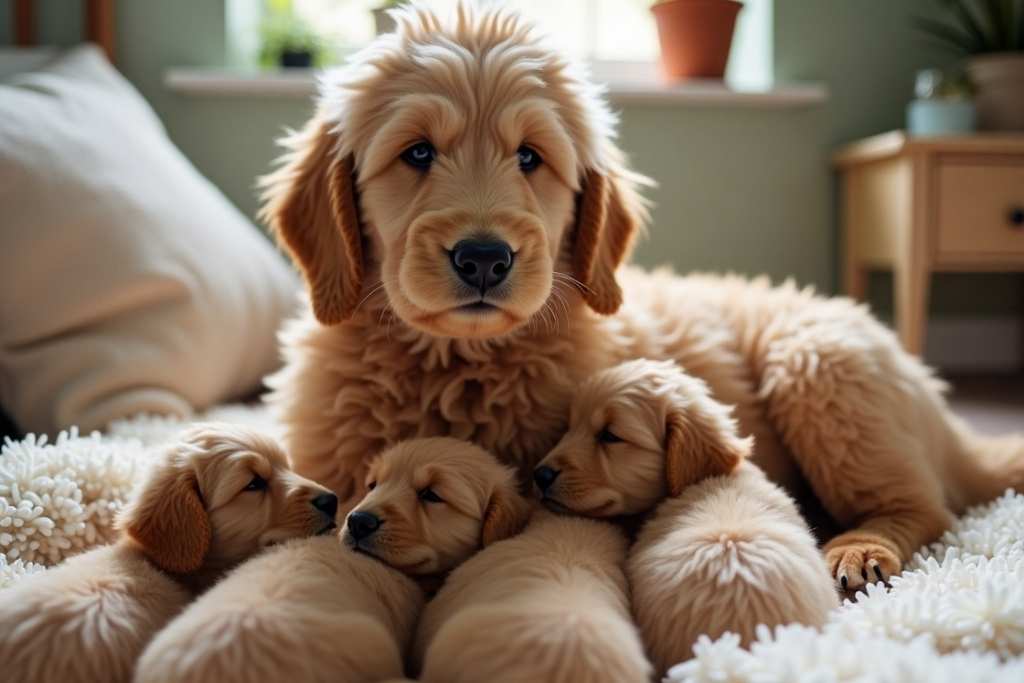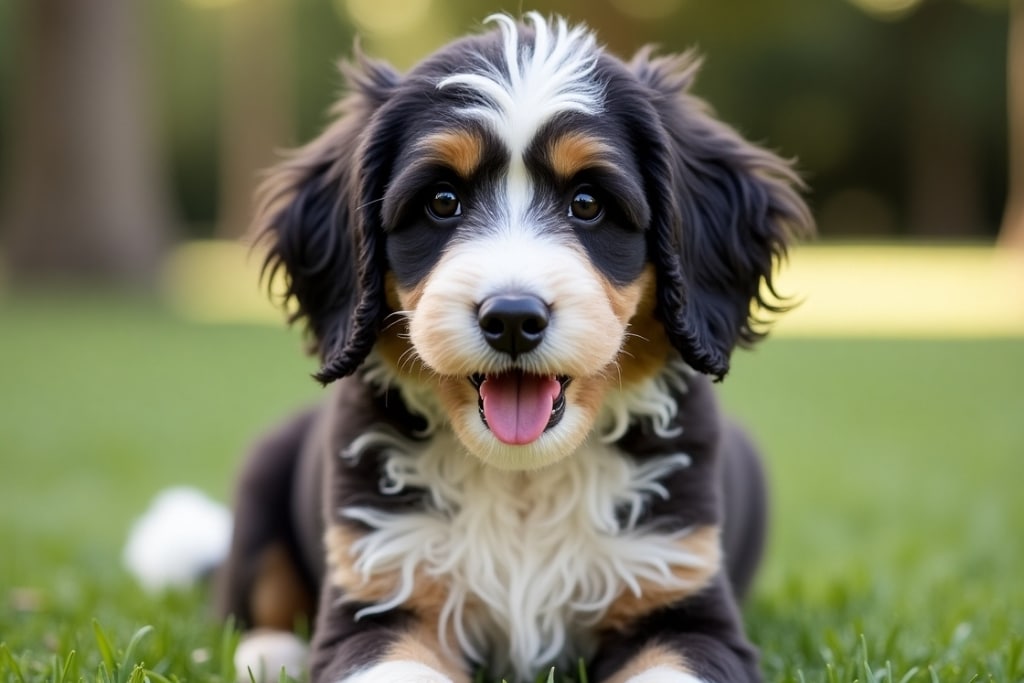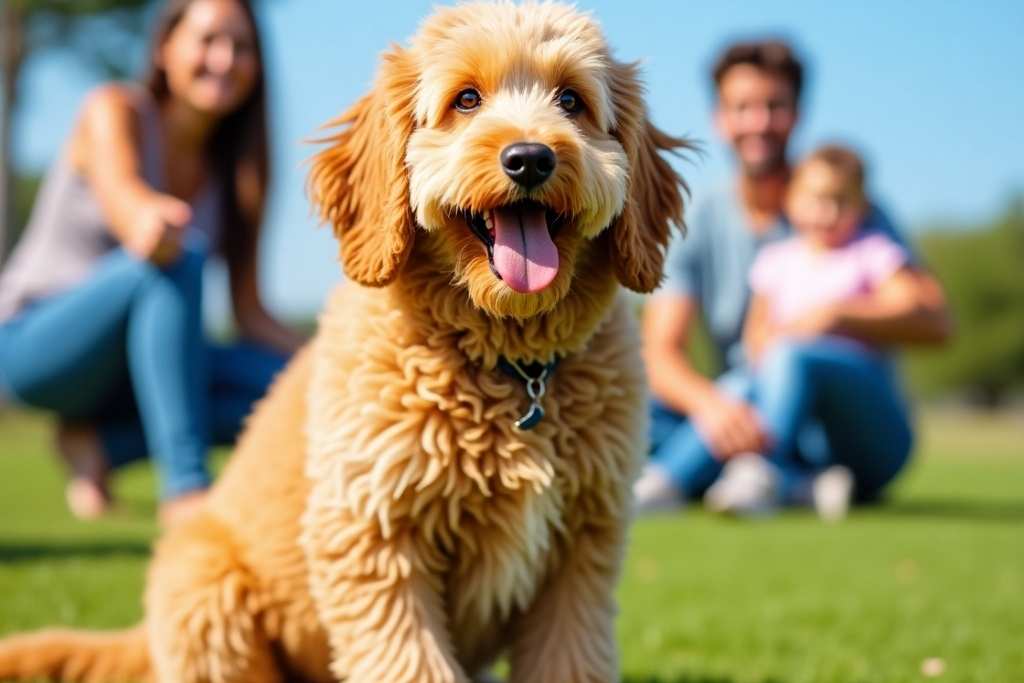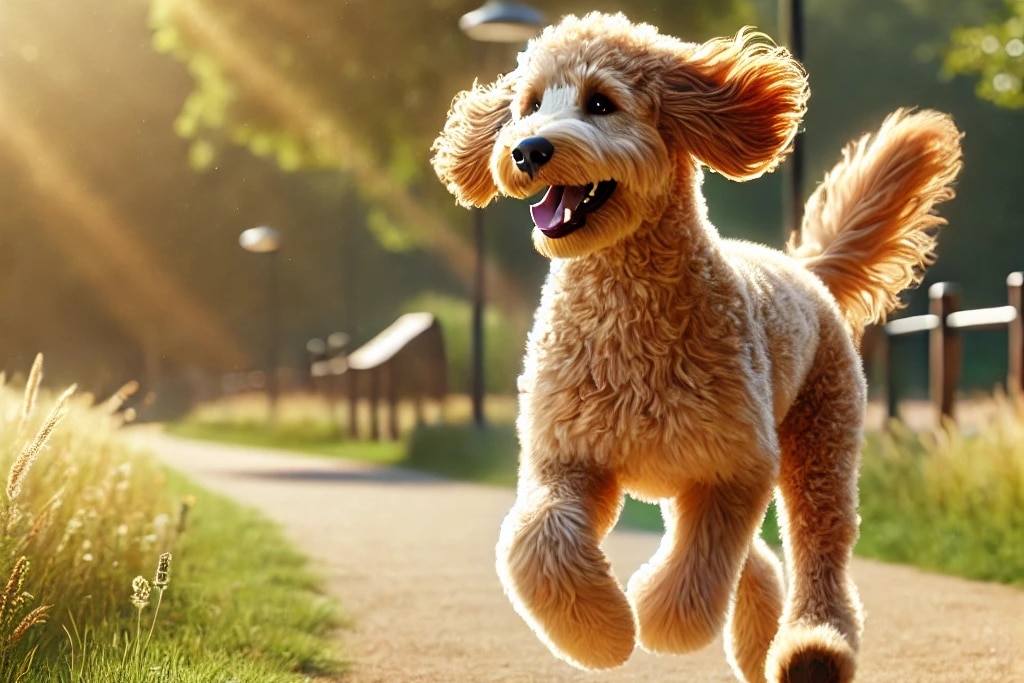Hello, fellow dog lovers! If you’re thinking about welcoming a Mini Goldendoodle into your home, one of the first things you may be wondering about is the typical size of their litters. Understanding litter size is crucial, whether you’re a prospective pet parent, a breeder, or just a dog enthusiast. Let’s dive into the fascinating world of Mini Goldendoodle litters and uncover what you can expect.
About Mini Goldendoodles
Before we dive into the topic of litter size, let’s take a moment to remember what makes Mini Goldendoodles so unique. These charming dogs are a cross between a Golden Retriever and a Miniature Poodle. By combining the best qualities of both breeds, Mini Goldendoodles are celebrated for their hypoallergenic coats, intelligence, and friendly demeanor. Their size, energy, and loving nature make them perfect companions for families. want to know more about Goldendoodle? Here
Typical Litter Size of Mini Goldendoodles
When it comes to Mini Goldendoodles, litter sizes can vary, but there’s a general range that most breeders can expect: litter size ranges from 1 to 12 puppies, but the average is 3 to 6. A dog’s first litter may be smaller than later litters. The size of the litter depends on several factors, including the parents’ sizes, their health, and genetics. On average, a Mini Goldendoodle litter typically consists of:
- 3 to 6 puppies: This range is the most common, although it’s not unusual for some litters to have fewer or more puppies.
Factors Influencing Litter Size
Several factors play a role in determining how many puppies a Mini Goldendoodle mother will have. As a breeder, here are some key factors to consider:
- The Size of the Parents: Generally, smaller Mini Goldendoodles tend to have fewer puppies. Larger parents may produce bigger litters.
- Health and Age of the Mother: Younger, healthier mothers are more likely to have larger litters. As the mother ages, the number of puppies in her litter may decrease.
- Genetic Factors: Both the mother’s and father’s genetics can impact the litter size. Some dogs may naturally pass on traits that influence larger or smaller litters.
- Breeding History: If the mother has had previous litters, that could also affect the number of puppies. First-time mothers often have smaller litters compared to those with breeding experience.
First-Time Litters vs. Subsequent Litters
First-time mothers often have smaller litters, and this is particularly the case for Mini Goldendoodles, where the initial litter may only have a few puppies. As the mother grows older and becomes more experienced, her later litters usually increase in size. It’s interesting to observe how each pregnancy can vary, even for the same dog.
Micro Mini Goldendoodles and Their Unique Traits
First-time mothers often have smaller litters, and this is particularly the case for Mini Goldendoodles, where the initial litter may only have a few puppies. As the mother grows older and becomes more experienced, her later litters usually increase in size. It’s interesting to observe how each pregnancy can vary, even for the same dog.
Breeding Practices and Techniques
In order to optimize the health and well-being of both the mother and her puppies, it’s important to consider the best breeding practices. Some breeders opt for natural breeding, while others prefer artificial insemination. Both methods have their benefits, but artificial insemination is often used when breeders want to control genetic traits more precisely.
One of the most important factors in successful breeding is minimizing stress for the mother. A calm, quiet environment during pregnancy can help the mother stay healthy, which in turn, increases the likelihood of a successful and healthy litter.
What Is the Average Size of a Goldendoodle Litter?
- Typical Litter Size: A Mini Goldendoodle usually has 4 to 8 puppies.
- Smaller Litters: Micro Mini Goldendoodles generally have smaller litters, with around 3 to 6 puppies.
- First-Time vs. Subsequent Litters: First-time mothers often have smaller litters, while experienced mothers may have larger ones.
Importance of Health Testing
Conducting health tests is vital for responsible breeding practices. It guarantees that both the mother and her puppies are in good health. Regular visits to the vet, along with genetic screenings, can help identify and prevent hereditary health concerns, allowing the puppies to have a greater opportunity for a healthy life.
Caring for a Mini Goldendoodle Litter
You have just given birth to a Mini Goldendoodle litter, and it is important to know that the miniature Goldendoodles require care for the mother as well as care for the puppies. Here are some of the important steps you need to take:
- Veterinary Care: Keeping her regularly checked and taken care of prenatally is as vital for the puppy as it is to the mother.
- Proper Nutrition: A good and balanced diet would also keep the mother active and give her all the energy and nutrition that she requires to take care of the growing puppies.
- Safe Whelping Area: Prepare a calm, quiet, and comfortable space to give birth in and care for her pups.
Conclusion
Mini Goldendoodle litters are a delight to experience, but they need thoughtful planning and care. By knowing the usual litter size and the different factors that can affect it, you can be more prepared for a new member of your family or breeding program. As always, it’s a good idea to reach out to a professional veterinarian if you have any questions or concerns.
FAQs
The typical litter size ranges from 4 to 8 puppies, although it can vary depending on factors like size and health.
Younger mothers generally have larger litters, while older mothers may have fewer puppies.
Factors like nutrition, stress, and overall health can affect the size and health of the litter.
Artificial insemination allows breeders to control genetics more precisely and may increase the chances of a successful litter.
Health testing helps prevent genetic disorders and ensures that the mother and her puppies are healthy and well-cared for.







